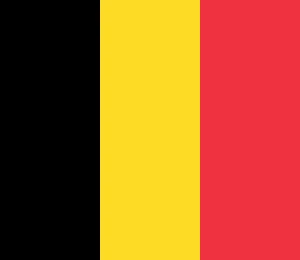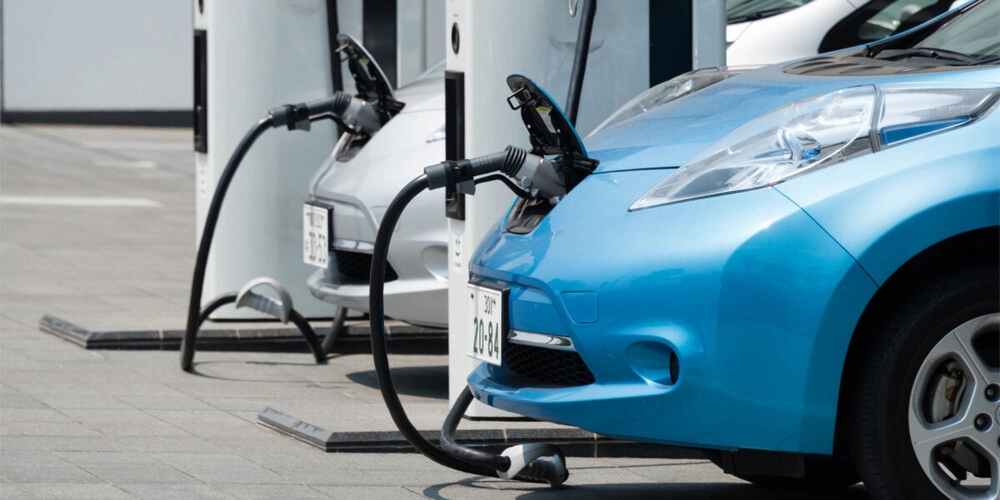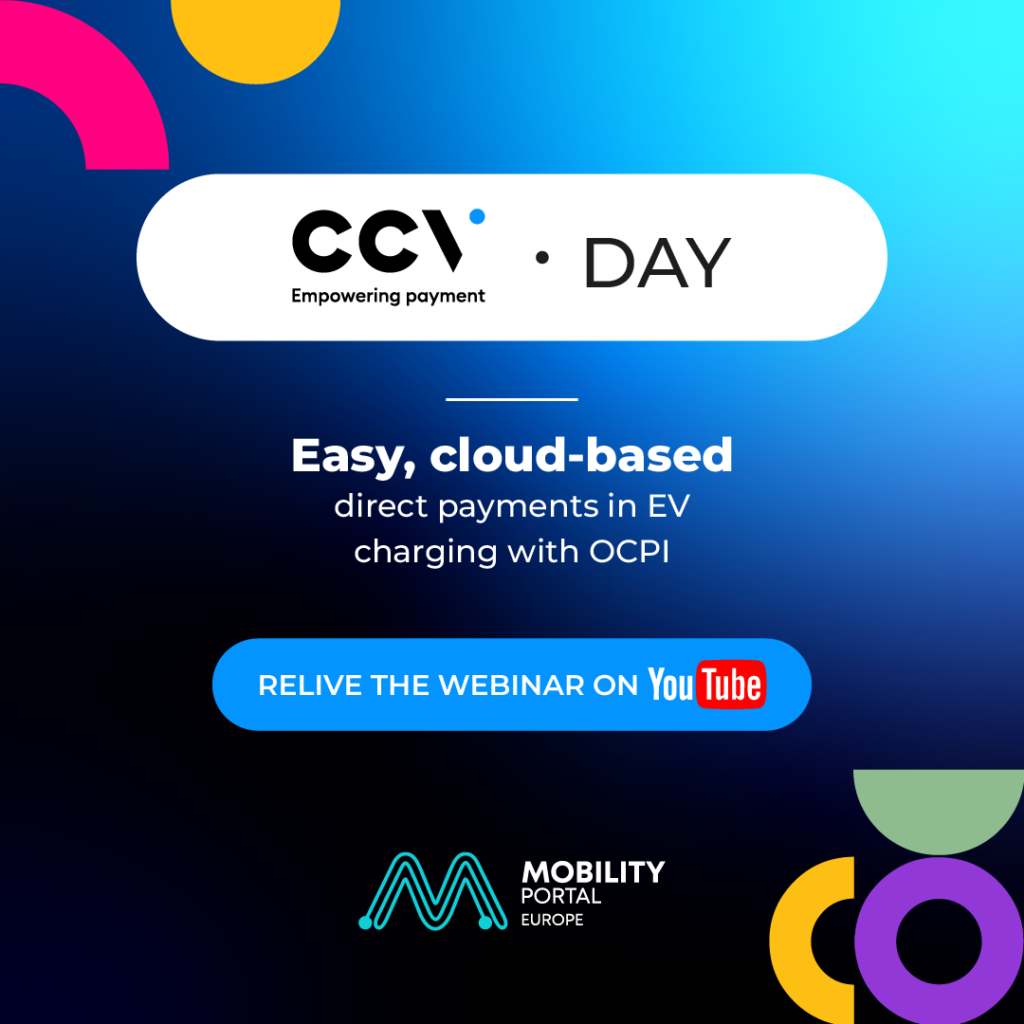Currently, transportation is responsible for approximately 21.5 per cent of emissions in Belgium, due to the almost total dependence on oil.
Therefore, the need to carry out a transition where electromobility is accessible to all is becoming increasingly relevant on the national political agenda.
With an eye on the upcoming federal elections scheduled for June 9, 2024, candidates are presenting various proposals to promote this change.
On this day, 150 members of the Chamber of Representatives are elected in 11 electoral districts: one per province and the Brussels-Capital electoral district.
Specifically, residents of the Flemish Region elect 87 seats, those of the Walloon Region 47, and those of Brussels 16.
Below, Mobility Portal Europe compiles the eMobility proposals of the main candidates.
Flemish Region
Flanders has seven major political parties: Partij van de Arbeid van België (PVDA, Marxists), Vooruit (Socialists), Groen (Greens), and Christen-Democratisch & Vlaams (CD&V, Christian Democrats).
Additionally, Open Vld (Liberals), Nieuw-Vlaamse Alliantie (N-VA, Flemish nationalists), and Vlaams Belang (far-right) are present.
Both Groen, Vooruit, and CD&V express interest in implementing a social leasing system similar to that adopted by Emmanuel Macron in France.
According to Naomi Cambien, Policy expert in transportation at Bond Beter Leefmilieu (BBL), speaking to Mobility Portal Europe, this is because “they consider it a much better alternative for a one-off subsidy with a Mattheus effect.”

CD&V wants to drive widespread adoption of bidirectional and smart charging as soon as possible.
They also aim to expand access to dynamic energy contracts and promote Fluvius (Distribution System Operator for Flanders) to share data on grid congestion, an issue looming over Belgium.
They also intend to allocate a larger budget for the acquisition of electric buses.
All this is to enable citizens to invest in the grid, actively participate in the energy transition, and benefit from it.
Similarly, Vooruit advocates for a more robust network and proposes to promote a national action plan for charging infrastructure, as well as the transition to zero-emission public transport by 2030.
They will also focus on the implementation of strategically located smart charging hubs and want companies to make their infrastructure accessible to local residents.
Not only that, but they also refer to the needs for freight transport, highlighting the importance of implementing high-power chargers in warehouses and truck parking areas.
As well as mobile charging stations on the main axes of the highway network.
This measure will be crucial to comply with the Regulation on Alternative Fuels Infrastructure (AFIR).
Finally, they seek the gradual elimination of diesel cars for professionals and to include vans in road pricing systems, with exemptions for electric vehicles (EVs).
Groen aims to deploy infrastructure at strategic locations, accessible to all.
Both Groen and Vooruit refer to urban logistics.
The former aspires to zero emissions by 2030, while the latter proposes to make it completely emission-free, grouping goods and using electric vans and cargo bicycles.
Open VLD, on the other hand, seeks to introduce more flexibility through bidirectional charging, addressing current legislative issues, and promoting charging methods such as hubs and mobile systems.
PVDA proposes to establish a public network of charging infrastructure.
CD&V wishes to maintain tax exemptions for registration and circulation taxes for eCars until they are more economical than internal combustion ones.
“For Vlaams Belang, I think it suffices to say that they see EVs as climate fairy tales and that they are against the phase-out of internal combustion engines by 2035,” Cambien says.
This was demonstrated in their program, where they ensure that they want to stop the progressive elimination of the combustion engine, advocating for freedom of choice regarding the type of engine.
Additionally, they propose to abolish low-emission zones (LEZ) in Antwerp, Ghent, and Brussels.
Walloon Region
In the French-speaking part, the main parties are the Parti Socialiste (PS), Mouvement Réformateur (MR, liberal), Ecolo (Green), and Les Engagés (humanist and Christian democrat).
Démocrate Fédéraliste Indépendant (DéFI, progressive liberal) and the Parti du Travail de Belgique (PTB, Marxist) also join.
PS advocates for strengthening public services and their role in the ecological transition, with initiatives aimed at insulating buildings and developing the quality of public transport.
They also aim to adopt policies for the renewal of professional vehicles dependent on public authorities favoring low-energy consumption and low-emission cars.
PS proposes incentives for eMobility aimed at low-income households, as well as accelerating the implementation of charging points in homes, workplaces, commercial areas, and roads.
MR advocates for intermodality, which adapts transportation solutions to local needs and users, using environmentally friendly technologies.
In this regard, it proposes to review automobile taxation without increasing it, deploy a large number of charging stations, and offer viable mobility solutions for owners of old cars.
MR emphasizes the importance of ensuring affordable and carbon-free energy.
Ecolo suggests a 15 billion euro investment plan in the ecological transition, with the aim of achieving Belgium’s climate goals.
Among its proposals, it highlights boosting the use of electric cars for trips that require this means, accelerating the installation of accessible charging points for everyone, both on roads and off.
Les Engagés seeks to reform car taxation to incentivize the purchase of light, electric, or low-carbon vehicles, including a VAT exemption for individuals.
It also plans to eliminate tax advantages for company cars.
Regarding charging points, it aims to deploy a network reaching one point per ten EVs and a supercharger per 100.
Given the significant delay in deploying points in the Walloon Region, the party aims to launch concessions related to installation in public spaces and highways.
Their goal is to reach at least 60,000 points by 2030 and improve the accessibility of existing ones.
DéFI considers it crucial to develop infrastructures more massively, proposing an ambitious installation plan, without neglecting urban, accessibility, and parking aspects.
It will also encourage owners of thermal vehicles to opt for electric ones or, in the future, for green hydrogen or neutral synthetic fuels.
PTB proposes a public investment plan in renewable energies, housing renovation, and public transport.
They also oppose antisocial measures, such as taxes on car mileage, arguing that they penalize citizens without offering them a real solution.
How are the polls progressing?
According to the “Grand Baromètre,” published by RTL-Le Soir, in the Brussels Region, MR leads the voting intentions with 21.8 per cent, followed by PTB with 17.5 per cent and PS with 15.4 per cent.
Ecolo is in fourth place with 14.7 per cent, DéFI in fifth with 8.8 per cent, and Les Engagés in sixth with 6.9 per cent.
In Flanders, the dominance of Vlaams Belang is definitive.
The far-right party leads the poll with 27.4 per cent, ahead of N-VA (20.4 per cent).
Naomi Cambien points out that extreme parties “are very much casting themselves as car driver ‘defenders’, being against any obligation or taxation.”
And she states: “As they are winning, this entails a big risk of slowing down the much-needed energy transition, leaving people stuck with high energy costs and bad air quality.”
In third place in Flanders is CD&V with 13.1 per cent, followed by Vooruit with 11.4 per cent and PVDA with 9.5 per cent.
Open Vld is in sixth position with 8.3 per cent, ahead of the Greens of Groen (7.8 per cent).
BBL demands that whoever wins in the Flemish region will promote a social leasing system aimed at specific low-income groups and an increased offer of shared EVs.
As well as implementing zero-emission public transport by 2030, greater fiscal incentives, and a focus on smart charging hubs.
Meanwhile, in Wallonia, PS leads the survey with 21.3 per cent, followed by MR with 20.5 per cent and Les Engagés in third place with 16.8 per cent.
PBT is fourth with 14.9 per cent and Ecolo fifth with 11.9 per cent.
The barometer, conducted by the Ipsos office from March 11 to 18, surveyed around 2,600 Belgians (1,000 in Wallonia, 1,000 in Flanders, and 600 in the 19 municipalities of the Brussels-Capital Region).
What will be voted on in the federal elections on June 9?
Belgians will decide who will occupy seats in the Flemish Parliament and the Chamber of Representatives for the next years, as well as who can occupy positions in the European Parliament.
Subsequently, the representatives of the elected political parties will negotiate who will become the next Prime Minister of Belgium, a position currently held by Alexander De Croo since 2020.






